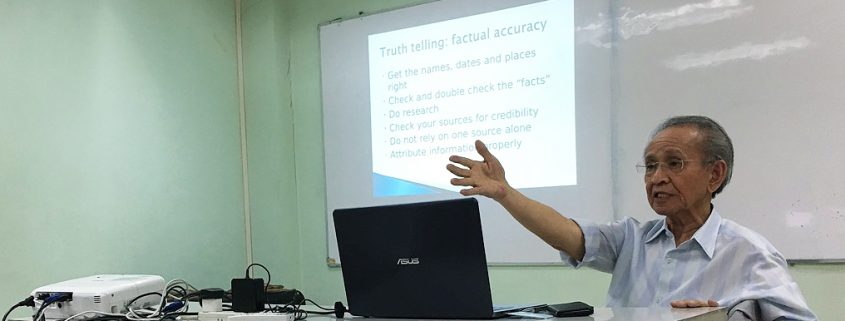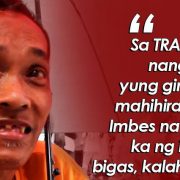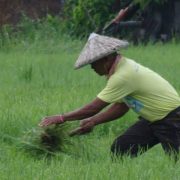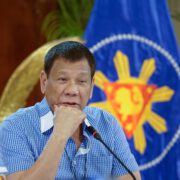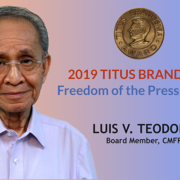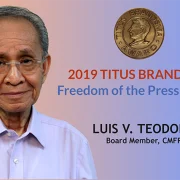Former UP dean launches workshop on ethical reporting
By April Burcer
“One of the most common flaws of Philippine media is lack of context in reporting,” former dean of the College of Mass Communications in UP Diliman Luis Teodoro pointed out during his workshop on journalism ethics yesterday.
Organized by the People’s Alternative Media Network (Altermidya), the workshop aimed to remind young media practitioners about the importance of adhering to ethical standards when reporting and to discuss the common ethical problems in the Philippine press.
Lack of context, according to Teodoro, is both a professional and ethical failing because people can’t make sense of what the story is all about.
He cited conflict reporting as an example, particularly the Marawi siege and the 2001 military campaign against the Moro Islamic Liberation Front (MNLF).
“During the Marawi siege, 90 percent of the coverage was in the conduct of the war. There is hardly any context. Same with the 2001 military attacks which the Center for Media Freedom and Responsibility (CMFR) analyzed, showing that out of 6000 articles, only seven provided context,” Teodoro said.
Social issues and the Philippine Press
Teodoro criticized the Philippine media for failing to provide context on the social issues they are covering, including poverty, contractualization, unemployment, and President Rodrigo Duterte’s directive against so-called loiterers.
“The most crucial thing about the Filipino society is its poverty. There are 22 million Filipinos in extreme want and 50 million others who are vulnerable to the vicissitudes of living in the Philippines. Much of the reporting has to be about poverty and its related consequences and implications,” the former dean said.
He also said that not all ‘tambays’ (loiterers) are lazy or criminals, and that most of them are victims of labor only contractualization, poverty and poor housing conditions.
“The media have to be reporting all of these. Are they reporting these? Are they doing a good job of reporting these?” he asked.
He also noted that the social issues are given more exposure in social media than in the Philippine media.
Ethical Problems in the Philippine Press
According to Teodoro, being accurate is very important, especially today in the era of alternative truth and fake news, saying “false information can be very dangerous.”
He also emphasized the importance of adhering to the rules of journalism at a time when ordinary citizens and non-journalists can practice journalistic work.
“The press has the capacity to help transform society. It can do this by being true to the ethical standards that for many years have been established,” Teodoro advised.
Teodoro, Altermidya chairperson, is a retired Journalism professor in UP College of Mass Communication, a noted author and resource speaker on journalism ethics, media education and other media issues for various workshops, seminars and conferences in the Philippines and abroad. #

